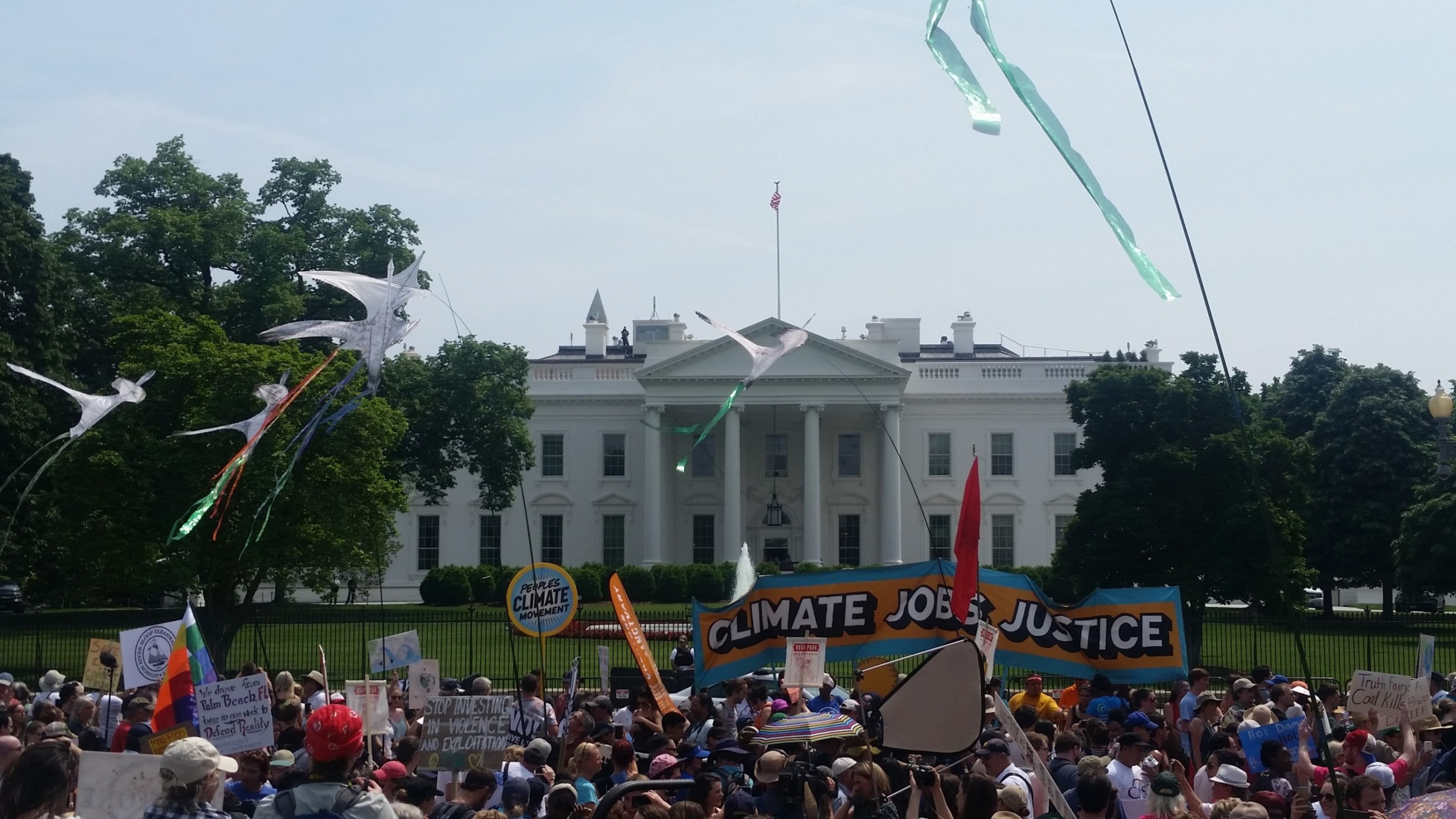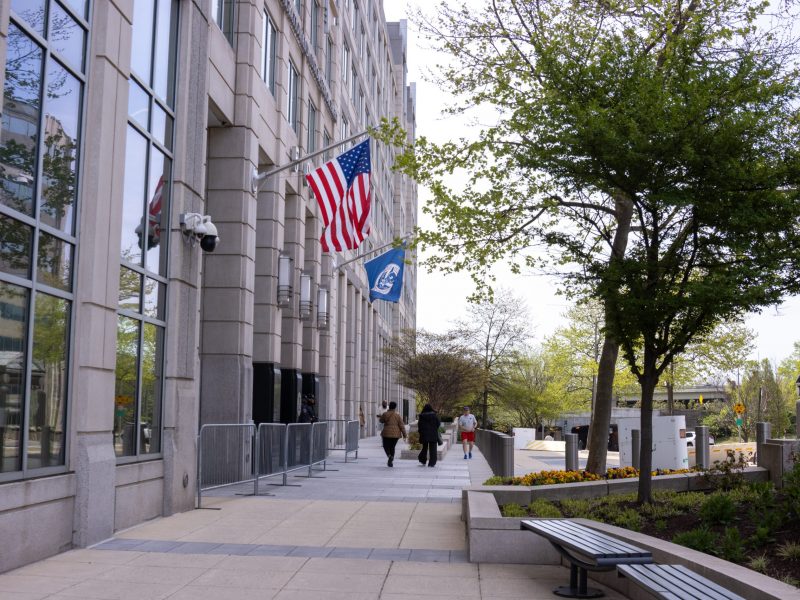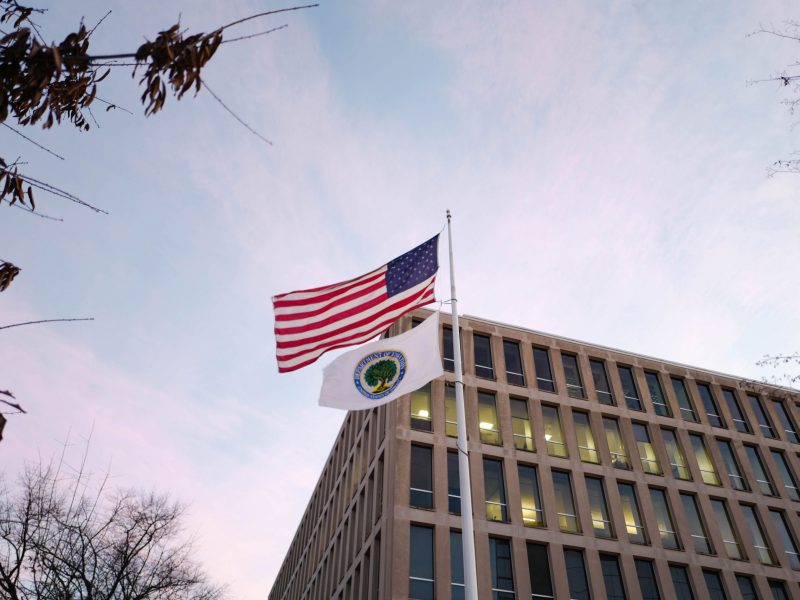Temperatures reached 92 degrees in Washington, D.C., on Saturday, but the heat didn’t deter students as they marched to the White House along Pennsylvania Avenue for the People’s Climate March.
Students from the University of Maryland joined about 200,000 others as they held their signs at the corner of Third Street and Constitution Avenue and protested President Trump’s environmental policies.
The protest was directed at Trump’s policy on climate change, including scaling back regulations on oil drilling, coal mining and greenhouse gas emissions.
MaryPIRG and the Student Government Association Student Sustainability Committee organized two buses outside Xfinity Center at 10 a.m. to take students to the march. Members of MaryPIRG and the committee provided blank posters for students to craft their own signs.
The buses shuttled 108 students to the Peace Monument, outside the Capitol. Another 20 students arrived by metro or on bike, said Willem Klajbor, co-director of the Student Sustainability Committee and a junior economics and environmental science and policy major.
Advocating for the student body on environmental issues and coordinating ways for students to be politically active is the main goal of the committee, Klajbor said.
“Events like this are huge successes,” Klajbor said. “When we can bring Maryland students off campus to stand up for something that they believe in, [something] that will disproportionately affect our generation, I think that shows that the University of Maryland is really a university of global citizens.”
[Read more: UMD students participate in March for Science to protect programs under siege by Trump]
This semester, MaryPIRG focused on lobbying for a statewide fracking ban, said Deanna Stephen, a MaryPIRG coordinator and sophomore English and environmental science major. The group ended up collecting about 1,400 petitions from students against fracking in the state, Stephen said.
Fracking involves injecting high-pressure water, sand and chemicals deep into an underground well to crack shale rock and release the natural gas stored inside. Opponents of fracking claim the method to obtain natural gas can cause water and air pollution, as well as earthquakes.
Gov. Larry Hogan on April 4 approved legislation banning fracking statewide, allowing MaryPIRG to realign its objectives for the rest of the semester.
“The focus has kind of shifted to larger environmental events and demonstrations that we can take as learning and teaching opportunities,” Stephen said. The march was one of these events, she added.
[Read more: UMD MaryPIRG celebrates state’s permanent fracking ban after months of lobbying]
Protesters aimed much of their frustration at the current administration’s failure to address climate change, but some students questioned this university’s own initiative on some environmental issues.
Christine Hagan, the SSC director and a junior environmental science and policy major, praised university President Wallace Loh’s presence at the March for Science last weekend but said he could show more support for environmental issues on the campus, such as an SGA campaign pushing for the University System of Maryland Foundation to divest from fossil fuels.
A University System of Maryland Foundation committee made formal recommendations to divest from fossil fuels last year, but it has not committed to a deadline or released its progress to the public.
Hagan said she understands the time-intensive nature of such a plan but felt there still could be more initiative from this university’s leadership. For one, Loh could leverage more pressure on the foundation to divest sooner, she said.
Sara Spaur, a senior economics and government and politics major, echoed Hagan’s sentiment for divestment from fossil fuels.
“There’s a lot of support for clean energy, and we as a university should focus on investing in [it],” she said.
At 3 p.m., buses picked students up at the Peace Monument and returned them to the campus, where Maryland Day was still providing entertainment for their peers who didn’t attend the protest.
But for Jemma Lehner, a freshman studying environmental science and policy, the importance of representing this university at the People’s Climate March far outweighed the campus festivities.
Lehner stressed the need to have students show up to the protest and to make clear to legislators that climate change cannot be ignored any longer.
“We have Maryland Day going on, which is a really big thing for us, but we need to be doing this instead,” she said. “I’m an environmental optimist [and] I think it’s important to show up for [events] like this, so I’m going to for now on.”



